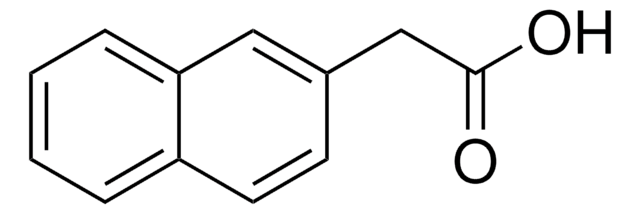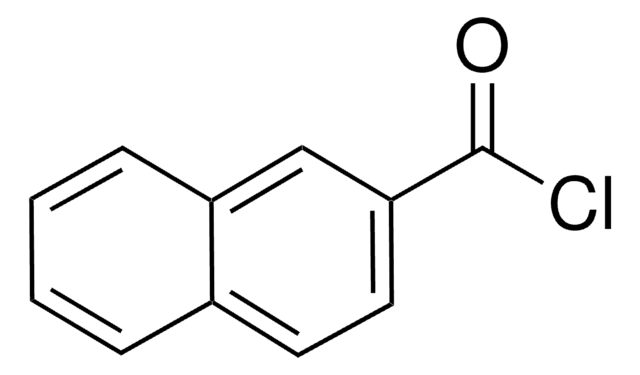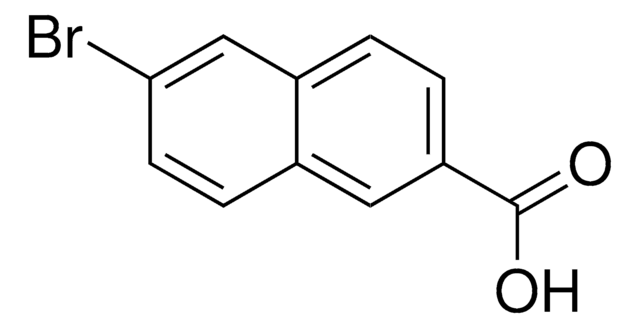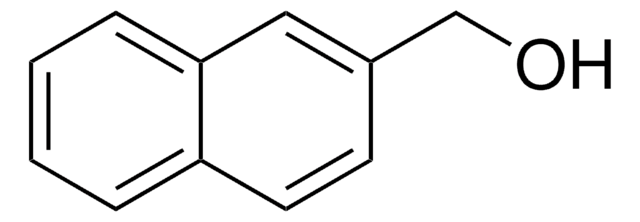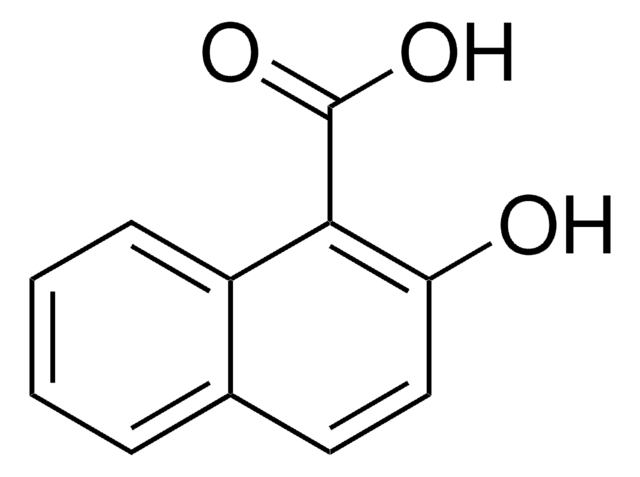180246
2-Naphthoic acid
98%
Synonym(s):
2-Naphthalenecarboxylic acid
About This Item
Recommended Products
Assay
98%
form
powder
mp
185-187 °C (lit.)
solubility
alcohol: soluble
diethyl ether: soluble
hot water: slightly soluble
SMILES string
OC(=O)c1ccc2ccccc2c1
InChI
1S/C11H8O2/c12-11(13)10-6-5-8-3-1-2-4-9(8)7-10/h1-7H,(H,12,13)
InChI key
UOBYKYZJUGYBDK-UHFFFAOYSA-N
Looking for similar products? Visit Product Comparison Guide
General description
Storage Class Code
11 - Combustible Solids
WGK
WGK 2
Flash Point(F)
Not applicable
Flash Point(C)
Not applicable
Personal Protective Equipment
Certificates of Analysis (COA)
Search for Certificates of Analysis (COA) by entering the products Lot/Batch Number. Lot and Batch Numbers can be found on a product’s label following the words ‘Lot’ or ‘Batch’.
Already Own This Product?
Find documentation for the products that you have recently purchased in the Document Library.
Customers Also Viewed
Our team of scientists has experience in all areas of research including Life Science, Material Science, Chemical Synthesis, Chromatography, Analytical and many others.
Contact Technical Service

